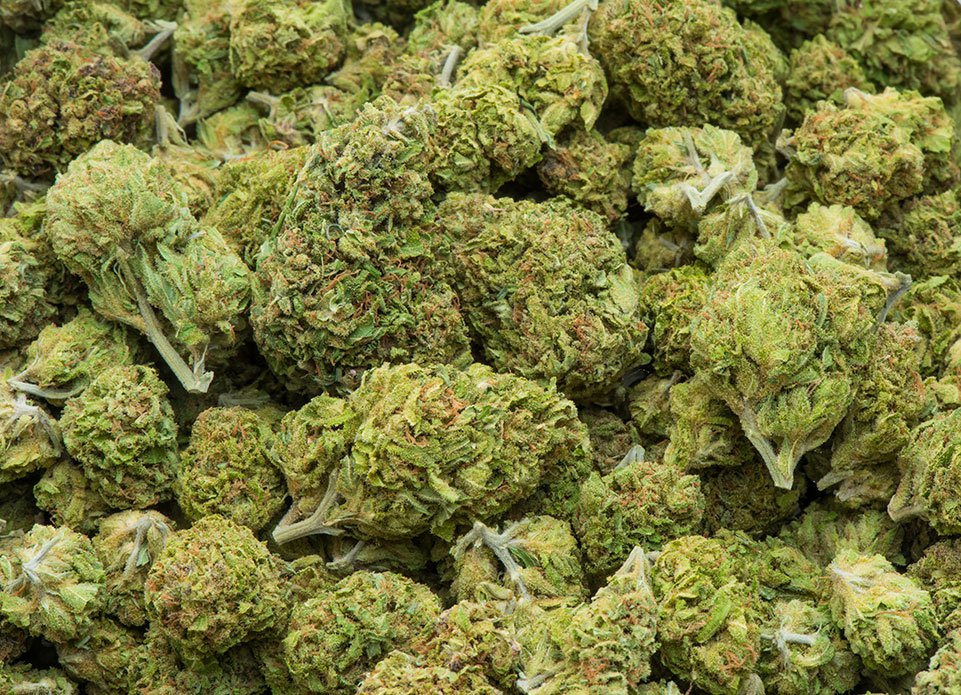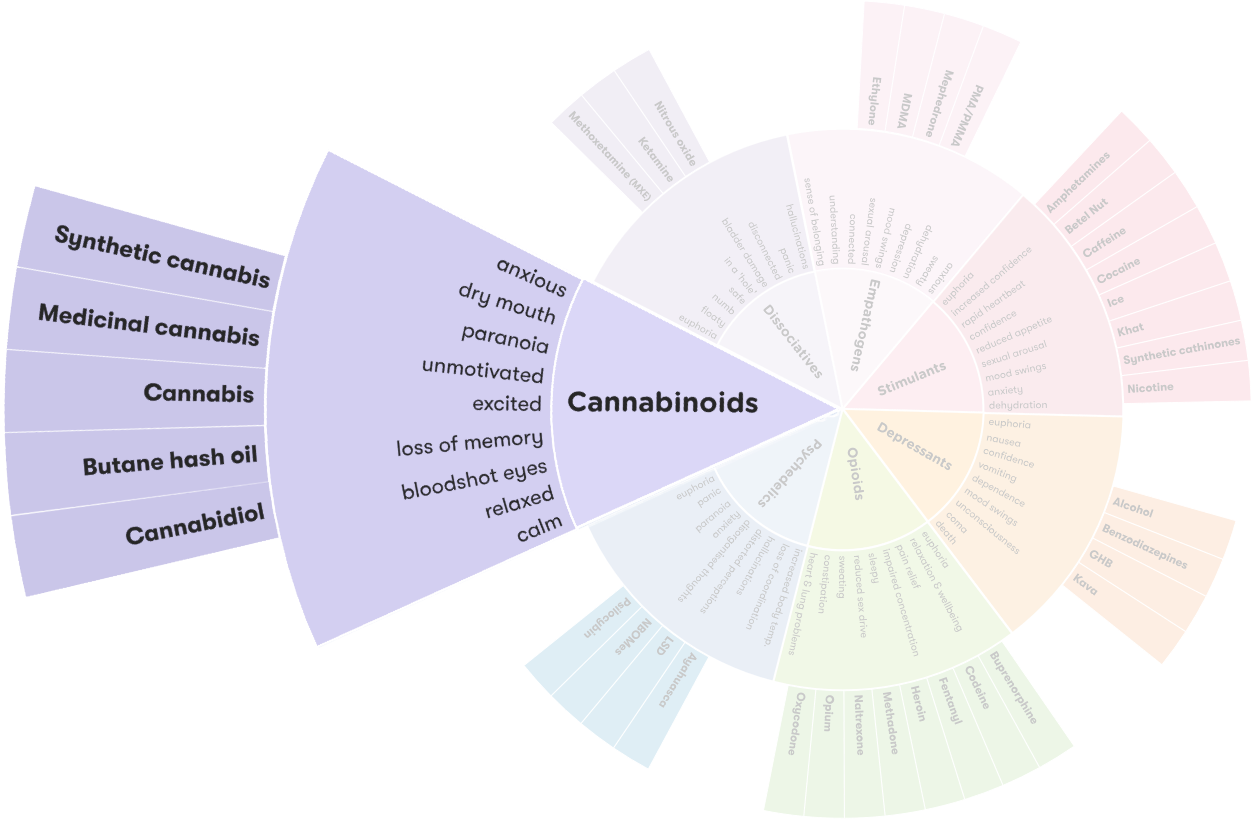Medicinal cannabis

Last published: December 21, 2023
Note: The information given on this page is not medical advice and should not be relied on in this way. Individuals wanting medical advice on this issue should consult a health professional.
What is medicinal cannabis?
Broadly speaking, medicinal cannabis is cannabis prescribed to relieve the symptoms of a medical condition, such as epilepsy.
It’s important to note there’s a difference between medicinal and non-medicinal cannabis. Non-medicinal cannabis is the form that people use to get ‘high’.1
For some people with chronic or terminal illnesses, conventional medicines don’t work, or don’t work as effectively as medicinal cannabis.2 Also, for some patients, conventional medicines may work but cause debilitating side effects that cannabis can help to relieve.2
Other types of cannabinoids
What are cannabinoids?
The main psychoactive ingredient of cannabis is tetrahydrocannabinol (THC), which acts on specific receptors in the brain known as cannabinoid or CB1 receptors.3
Research has found that the cannabis plant produces around 130 cannabinoids and about 300 non-cannabinoid chemicals. The two main cannabinoids that have therapeutic benefits are delta-9-tetrahydrocannabinol (THC) and cannabidiol (CBD). There have been claims that other cannabinoids have therapeutic properties, but these have not yet been proven.2
The main difference between the two cannabinoids is that THC has strong psychoactive effects, meaning it makes a person ‘high’, whereas CBD is thought to have an anti-psychoactive effect that controls or moderates the ‘high’ caused by the THC. CBD is also thought to reduce some of the other negative effects that people can experience from THC, such as anxiety.4
The psychoactive effects of THC, such as euphoria and feeling relaxed or sleepy, are well known, but it also has analgesic, anti-inflammatory and antioxidant properties, as well as preventing and reducing vomiting.5
Research is being conducted into CBD for its potential to treat epilepsy, schizophrenia and other psychotic disorders, type 2 diabetes, inflammatory bowel disease, some tumours, and drug dependency.6
The endocannabinoid system
The endocannabinoid system is a unique communications system in the brain and body that affects many important functions.7
It’s made up of natural molecules known as cannabinoids, and the pathways they interact with.
Together, these parts work to regulate activities like mood, memory, sleep, and appetite. It’s thought that medicinal cannabis can treat various illnesses by acting on the endocannabinoid system.7
Types and forms of medicinal cannabis
There are three main forms of cannabis that can be used medicinally:
- Pharmaceutical cannabis products that are approved by an organisation such as the Therapeutic Goods Administration (TGA), including nabiximols (Sativex®) and synthetic cannabinoids such as Dronabinol®. Sativex, which comes as a nasal or oral spray, has been approved in over 24 countries for treating spasticity due to multiple sclerosis.
- Controlled and standardised herbal cannabis (plant products), such as the products produced in the Netherlands.
- Unregulated and illegal herbal cannabis (plant products), which contains unknown concentrations of cannabinoids and potentially harmful impurities such as bacteria and mould (USA only).8
Why smoking cannabis for medical purposes isn’t recommended
Some people claim that smoked cannabis should be considered as a treatment for various medical conditions or even as a cure for cancer. However, there are two major concerns.
Firstly, smoking is a particularly harmful way of taking cannabis, mainly because cancer-causing substances are inhaled directly into the lungs. Smoking cannabis is not recommended by health authorities, as the smoked form contains at least 50 of the same carcinogens as tobacco. 9
Secondly, the majority of medicines used in Australia are produced under strict conditions. That way, doctors who are prescribing them (as well as people who are using them) know exactly what’s in them.
It’s important that doctors know that medicines have been tested and that each dose is the same. This means doctors can monitor the effects of a drug and doses can be adjusted according to a patient’s needs.
When non-medical cannabis is used as medicine, doctors and patients can’t be sure of how strong it is or what mix of chemicals is in it. This means that one dose will never be the same as another.9
Side effects
There is a community need for medicines and therapies that can help to alleviate the painful symptoms of various illnesses and diseases.
An increasing number of studies suggest that medicinal cannabis in the form of oral extracts, sprays or pills can reduce pain and help treat some illnesses. However, as with many other drugs, medicinal cannabis can also cause unwanted side effects, such as difficulty concentrating, dizziness, drowsiness, loss of balance, and problems with thinking and memory.10
Special Access Scheme
Under the TGA Special Access Scheme, some forms of medicinal cannabis are available. The scheme allows the import and supply of an unapproved therapeutic good to individual patients on a case-by-case basis.
Recently, the TGA has made changes to its Special Access Scheme to make it easier for medical practitioners to prescribe cannabis-based medicines for patients in need, under certain conditions.
Medicinal cannabis and the law
Legislation which allows cannabis to be grown for medical or scientific purposes in Australia has been passed by the federal government.
In October 2016, the Commonwealth Government started a national licensing scheme for the growing and manufacture of medicinal cannabis and controls all its regulatory aspects.
Manufacture is a joint responsibility between the Commonwealth and the states and territories.
Access to any cannabis products manufactured under the scheme is also a joint responsibility, with supply controlled by the provisions in the Therapeutic Goods Act 1989, which works alongside state and territory drugs and poisons legislation. 11
Getting help
If your use of Medicinal cannabis is affecting your health, family, relationships, work, school, financial or other life situations, or you’re concerned about a loved one, you can find help and support.
Call the National Alcohol and Other Drug Hotline on 1800 250 015 for free and confidential advice, information and counselling about alcohol and other drugs
Help and Support Services search
Find a service in your local area from our list. Simply add your location or postcode and filter by service type to quickly discover help near you.
If you're looking for other information or support options, send us an email at druginfo@adf.org.au
- Mayo Clinic. Medical marijuana 2021 [cited: 15.02.2021].
- Herbert A Hardy J. Medicinal cannabis use in palliative care. Australian Journal of General Practice. 2021;50(6).
- Arnold J Nation T McGregor I. Prescribing medicinal cannabis. Australian Prescriber. 2020;43(5).
- Lafaye G Karila L Blech L Benyamina A. Cannabis, cannabinoids, and health Dialogues in Clinical Neuroscience 2017;19(3).
- Atalay S Jarocka-Karpowicz I Skrzydlewska E. Antioxidative and Anti-Inflammatory Properties of Cannabidiol. Antioxidants (Basel). 2019;9(21).
- National Academies of Sciences Engineering and Medicine. The health effects of cannabis and cannabinoids: The current state of evidence and recommendations for research. Washington The National Academies Press; 2017.
- Nazarenus C. Medical cannabis handbook for healthcare professionals. New York: Springer Publishing Company 2020.
- Belackova V Ritter A Shanahan M Chalmers J Hughes C Barratt M Lancaster K. Medicinal cannabis in Australia – Framing the regulatory options. Sydney University New South Wales Drug Policy Modelling; 2015.
- American Lung Association.Marijuana and Lung Health 2020 18.02.2022].
- Australian Government Department of Health Therapuetic The Therapeutic Goods Administration. Medicinal cannabis: Information for consumers 2020 [18.02.2022].
- Australian Government Theraputic Goods Administration. Medicinal cannabis manufacture 2019 18.02.2022].
Related content
Explore cannabinoids on the Drug Wheel
